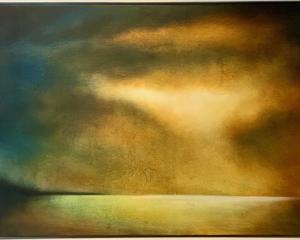It is is about to sing it again in a concert, "Fauré and Friends", on Sunday afternoon in St Paul's Cathedral.
David Burchell, the choir's musical director for the past 10 years, says he has held off doing it partly because it is so familiar, and partly because the choir is looking for new challenges.
"I like to challenge people beyond what they think they can handle, but not too far beyond - sufficiently beyond that they discover, yes they can do it and realise they are quite enjoying doing it and they want more.
"In the choice of repertoire, I always try to have that in mind - that it will be a sufficient challenge to keep people's interest involved and to take them perhaps in directions they haven't gone before."
In this concert, the challenges come from the other items in the programme, which are new to the choir - each in its own way poses a special challenge for one reason or another, he says.
Fauré's melodious requiem with its gentle, meditative quality may be the main work in the concert, but there is also music from France from Fauré's time, and more recently, which has stylistic and sometimes religious connections.
"We have a couple of unaccompanied part songs by Saint-Saëns - the choir doesn't very often sing unaccompanied; we have three motets by Fauré and Saint-Saëns with just the ladies' voices, which is something we don't do very often; and the men are taking on some pieces called Four Little Prayers of St Francis of Assisi by Poulenc, which is again something we don't do very often."
Although the choir rehearses for only two hours a week, with the help of assistant conductor Michael Dawson it has been possible to divide it in two , he says.
Francis Poulenc (1899-1963), who was influenced by Stravinsky, will be a challenge, as his harmonic style is different from Fauré's and the lines do not always go where it appears they will go, he says.
The concert also includes Laudate Dominum by Marcel Dupré (1886-1971) which is more rumbustious, and by way of an interlude, a meditative organ piece, Variations sur un thème Clement Jannequin, by Jehan Alain (1911-1940), written just before World War 2, which is more gritty, he says.
Gabriel Fauré (1845-1924) said he wrote his Requiem "for nothing . . . for fun, if I may be permitted to say so!" but both his parents had died within a couple of years so it may have been partly a memorial to them.
It was first performed in 1888 in the church of La Madeleine in Paris, where he was organist and choirmaster.
Requiems, settings of the Roman Catholic mass for the dead, have a special significance to anyone who believes in God or an afterlife, says Mr Burchell.
A number of requiems, like those of Verdi, Mozart and of course Fauré, have made a place for themselves in the regular choral repertoire as concert pieces as well as for liturgical use.
Fauré's is a very singable work on a relatively intimate scale, even when sung by large forces. It has dramatic moments but even they are not of overwhelming intensity.
Fauré was first and foremost a composer of song, he says.
"I think where Fauré differs from some others is that somehow he manages to avoid being over-sentimental in style and also in his melodic and harmonic writing tends to avoid the glaringly obvious.
"You'll think the music is going somewhere but there's a little twist. It means it isn't just what any hack would have written. The interest moves it on into a different tonality or just extends the shape you've had already, which stops it from getting predictable."
Mr Burchell says he enjoys the way the choir has grown both in numbers and its ability to learn and perform new music in the 10 years he has been director.
New members are welcome - they need to be able to sing in tune and to pick up something they've heard and repeat it reasonably quickly.
Music-reading ability is not so important, as that can be picked up as they go along, he says.
Catch it
The City of Dunedin Choir's concert, "Fauré and Friends" is on Sunday, June 13, 3pm at St Paul's Cathedral, in the Octagon.
It will feature Rachel Swindells and David Burchell on the organ, Catherine Daly-Reeve (soprano) and Benjamin Caukwell (baritone).












